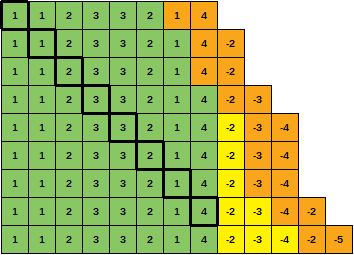This challenge is really simple (and a precursor to a more difficult one!).
Given an array of resource accesses (simply denoted by nonnegative integers) and a parameter n, return the number of cache misses it would have assuming our cache has capacity n and uses a first-in-first-out (FIFO) ejection scheme when it is full.
Example:
4, [0, 1, 2, 3, 0, 1, 2, 3, 4, 0, 0, 1, 2, 3]
0 = not in cache (miss), insert, cache is now [0]
1 = not in cache (miss), insert, cache is now [0, 1]
2 = not in cache (miss), insert, cache is now [0, 1, 2]
3 = not in cache (miss), insert, cache is now [0, 1, 2, 3]
0 = in cache (hit), cache unchanged
1 = in cache (hit), cache unchanged
2 = in cache (hit), cache unchanged
3 = in cache (hit), cache unchanged
4 = not in cache (miss), insert and eject oldest, cache is now [1, 2, 3, 4]
0 = not in cache (miss), insert and eject oldest, cache is now [2, 3, 4, 0]
0 = in cache (hit), cache unchanged
1 = not in cache (miss), insert and eject oldest, cache is now [3, 4, 0, 1]
2 = not in cache (miss), insert and eject oldest, cache is now [4, 0, 1, 2]
3 = not in cache (miss), insert and eject oldest, cache is now [0, 1, 2, 3]
So in this example there were 9 misses. Maybe a code example helps explain it better. In Python:
def num_misses(n, arr):
misses = 0
cache = []
for access in arr:
if access not in cache:
misses += 1
cache.append(access)
if len(cache) > n:
cache.pop(0)
return misses
Some further testcases (which contains a hint towards the next challenge - notice anything curious?):
0, [] -> 0
0, [1, 2, 3, 4, 1, 2, 3, 4] -> 8
2, [0, 0, 0, 0, 0, 0, 0] -> 1
3, [3, 2, 1, 0, 3, 2, 4, 3, 2, 1, 0, 4] -> 9
4, [3, 2, 1, 0, 3, 2, 4, 3, 2, 1, 0, 4] -> 10
Shortest code in bytes wins.



notice anything curious?for a while now... and just noticed, increasing the cache capacity doesn't necessarily decrease the number of misses?! \$\endgroup\$